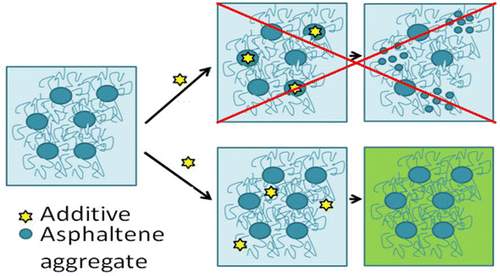Research Topics
01.
Colloidal Systems: Rheology, structure and thermodynamics
Flow behavior of macromolecules formed by covalent and non-covalent bonded is investigated in large range of concentration. Large molecules in very small concentrations are able to reduce hydrodynamic drag. As a consequence of this phenomenon, much lower energy is necessary to pump the solution. We use this property to investigate the stability of the macromolecular structure, as any fragmentation of the supramolecule results in loss of the drag reduction capability.
The drag reduction property has a very important application to minimize the energy required to pump fluids, which is very interesting in oil exploring process and in pumping fuels for very large distances.
In semi-diluted concentrations, the macromolecules can form gels due to chain interactions. Rheological measurements give quantitative information about the systems and scattering techniques such as SAXS, SANS and DLS are used to obtain their structures.
Role of F, Cl, Br and I in the wormlike micelles formation when combining C14tAB with 4-halogenbezoates. Jora et al, Journal of Molecular Liquids, 315, 2020.

Molecular Variations in Aromcatic Cosolutes: Critical Role in the Rheology of Cationic Wormlike Micelles. Ito et al, Langmuir, 30 (39), 2014.

02.
Fluids for Oil Exploration
The development in colloidal chemistry is attached to the development of surface and interface chemistry, that is because a great part of the phenomena observed in the colloidal scale happens as a result of the different chemical environment experienced by the dispersed particles. Surfaces and interfaces chemistry have a vast field of applications, like chemical catalysis and fuel, electronics and development of biomedical devices.
In this sense, a current problem is fossil fuel usage. According to B.C. Black in the book “Crude Reality: Petroleum in world hystory”: from the limited resource of petroleum grows the tragedy of humans’ reliance on it. Although the world transits to cleaner sources of energy, for some time fuel fossils will be necessary to maintain the pattern of the human society. Hence, to enhance oil recovery (EOR), new methods are continuously developed and usually include the application of different and complex chemicals. In our group, we develop complex fluids based on surfactants and ionic species to alter the behaviour of surfaces and interfaces for EOR applications.
Tailoring of wormlike micelles as hydrodynamic drag reducers for gravel-pack in oil field operations. Rodrigues et al, Journal of Petroleum Science and Engineering, 146, 2016.

Role of Asphaltenes and Additives on the Viscosity and Microscopic Structure of Heavy Crude Oils. Padula et al, Energy & Fuels, 30 (5), 2016.
